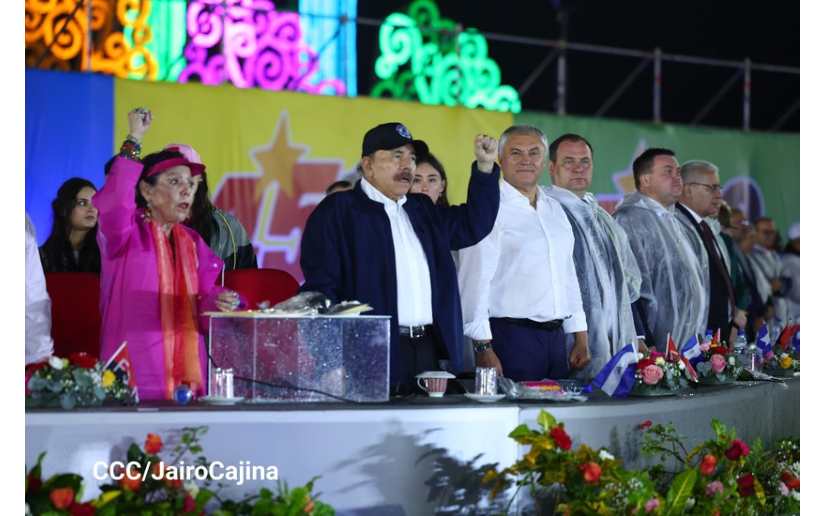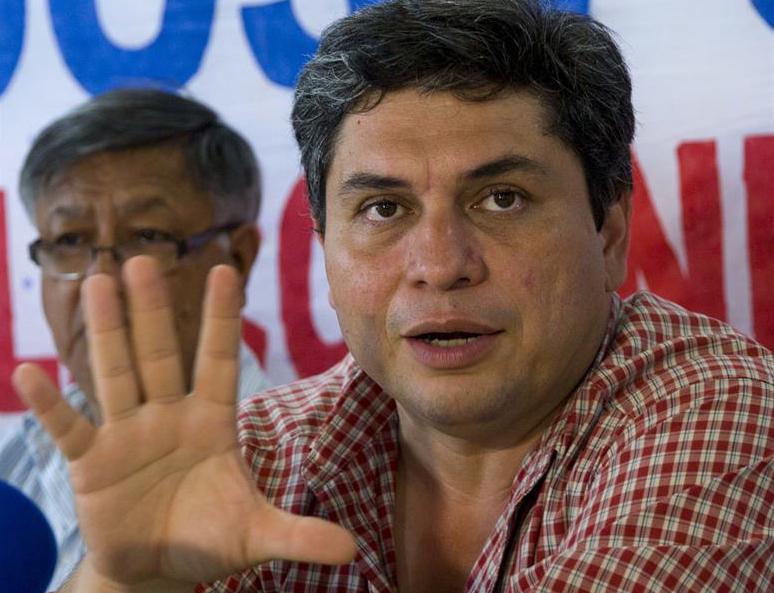The arbitration faced by Nicaragua in the United States, initiated by Riverside Coffee LLC, has forced the dictatorship of Daniel Ortega and Rosario Murillo to set aside their anti-American rhetoric and comply with the terms imposed by the Dominican Republic-Central American Free Trade Agreement (CAFTA-DR).
Analysts explained that despite the regime’s openly aggressive rhetoric against the “American empire” and its operators criticizing CAFTA-DR, the arbitration exposed the dictatorship’s fear of the consequences of not complying with the rules and processes established by this trade agreement.
The arbitration is being deliberated at the International Centre for Settlement of Investment Disputes (ICSID) in Washington. Riverside Coffee LLC is claiming $690 million in compensation for the massive destruction of its investment in 2018 by paramilitaries and Sandinista supporters.
The hearings have concluded and the process is currently awaiting an ICSID resolution. The Sandinista dictatorship has accepted the terms imposed in this lawsuit, and hired the U.S. law firm Baker & Hostetler to represent it in the case.

Manuel Orozco, Nicaraguan political analyst and director of the Migration, Remittances and Development program of the Inter-American Dialogue, explained that despite all of Ortega’s political hate speech towards the United States, the Sandinista dictatorship has no choice but to submit to the provisions of CAFTA-DR regarding the resolution of investor disputes with the Nicaraguan State.
“They have to defend themselves. First, it’s a legal obligation. When there is a treaty violation, there has to be a dispute resolution process. If the dispute resolution is not achieved, then you move to another level of litigation, and Nicaragua has to respond to all these things. They cannot absent themselves from this, because they would be breaking due process and subjecting themselves to penalties that can be implemented,” he explained.
Orozco stated that the United States is seriously considering how to change its contractual relationship with Nicaragua due to the dictatorship’s continuous breaches of the treaty, and that is the scenario the Ortega regime fears the most.
“Nicaragua has to avoid creating more inconvenience or more excuses to make those changes. But in specific terms, the violations of the treaty on labor and environmental issues are so many that the United States is considering how to proceed. And then, in the midst of that, the litigation of a coffee company arises, which has much greater consequences, because it can set a precedent in the activities of other companies that do not feel any legal security on the part of Nicaragua”, he pointed out.
Ortega’s careful Anti-American rhetoric

The political operators of the Ortega regime and the dictatorship’s propaganda maintain a constant discourse praising the supposed benefits of trade agreements with allies like China, but Ortega is particularly careful with the topic of CAFTA-DR.
“Ortega does not criticize Cafta. He does not talk about Cafta. He criticizes the U.S. empire, and that is his political discourse. It is what Ortega knows how to do. But really, this is not a problem for Daniel Ortega. This is a problem for the economic elite of the Ortegas, Rosario Murillo, and especially Laureano Ortega, who are the ones really playing a crucial role in building their new elite. They are concerned that a trade framework like Cafta is at risk due to poor legal handling of this case,” observed Orozco.
Orozco says that if the case results in a decision against Nicaragua, the regime has no choice but to accept the determined penalties. “They have to accept, they do not have many options. We will see what the arbitration presents in this regard because there are many claims, not just for economic compensation. We will see how the arbitration resolves that request,” he said.
The end of Cafta among the worst scenarios for the Nicaraguan economy

Political analyst Eliseo Núñez explained that Nicaragua’s commercial ties with the United States are so deep that the Ortega regime is aware of the economic consequences for the country if commercial relations with the North American power collapse.
“Even if the free trade agreement and what the United States represents are criticized, Ortega is clear that it represents 25% of direct formal employment, mainly free zone employment. So, he cannot afford to step out of the free trade agreement format and has to accept the demands within it,” he observed.
A new variant of the anti-American discourse is led by Laureano Ortega, the regime’s heir, who constantly proclaims the end of the hegemony of the U.S. dollar and the rise of the Chinese yuan. But according to Núñez, Nicaragua’s economic reality and its real dangers are different.
“The worst scenario Ortega faces is an economy without remittances and without a free trade agreement. But it does not have to be the worst. With just one of these two variables failing, the economy would collapse. That is, he might maintain remittances but not the free trade agreement with the United States, and he would be in serious trouble sustaining the country’s economy,” the political analyst emphasized.
The United States is Nicaragua’s main trading partner—accounting for 30% of its imports and being the destination for 55% of its exports—according to the latest report from the Office of Economic and Business Affairs of the U.S. Department of State.
This same report on Nicaragua’s 2024 investment climate warned that the country “maintains suspended civil rights guaranteed by the Constitution, the detention of political prisoners, the confiscation of private property, and its disregard for the rule of law, creating an investment climate plagued with reputational risk and arbitrary regulation.”
Ortega must choose between paying or dooming the economy
Núñez warned that given Nicaragua’s economic conditions and its commercial ties with the United States, betting on China is not a viable option, at least in the short term.
“If China starts buying products from Nicaragua, it is very likely that adapting Nicaraguan production to supply Chinese consumption habits will take more than ten years. Therefore, taking more than ten years also means a ten-year period in which you would lose employment without being able to replace it. And Ortega lives on what his state apparatus collects, and the state apparatus lives on what it collects in taxes. And the free trade agreement and remittances are its main drivers currently,” he argued.
The analyst also agreed that a resolution against Nicaragua entails assuming the established penalties. “He will pay. Don’t doubt it. We are talking about 600 million dollars versus the country’s economy. He has little room for maneuver on this,” he concluded.





